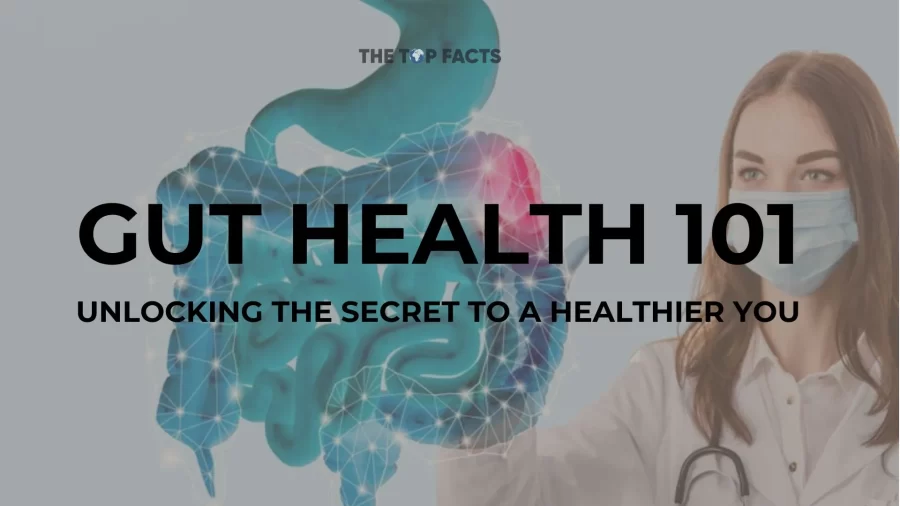Are you having difficulty losing weight, feeling bloated all the time, having a leaky gut, or having your skin break out? It may be possible that your gut health is disturbed. It’s not a mere coincidence; it might just be your gut sending out an urgent distress signal. Delve into the fascinating world of gut health, where the symphony of microbes within us holds the key to many wellness challenges. Buckle up as we unravel the secrets concealed in your gut, unveiling a tale of intricacies, resilience, and the profound impact it has on your overall health.
Table of Contents
What is Gut Health?
The gut refers to our digestive tract. It is important to have a healthy gut for our body to effectively absorb nutrients and function properly. Gut health refers to having a balanced gut microbiome, which leads to a healthy individual. Recognizing its significance is key to promoting overall wellness and preventing various health issues associated with an imbalanced digestive system.
Signs of an Unhealthy Gut:
Gut and health are intertwined. If your gut is unhealthy, you may experience all or some of the following:
-
Upset Stomach:
- Bloating, gas, and irregular bowel movements are common indicators of an unhealthy gut.
-
A High-Sugar Diet:
- The consumption of a diet high in sugar can disrupt the delicate microbial balance in the digestive system, negatively impacting gut health.
-
Unintentional Weight Changes:
- Rapid weight loss or gain may signal an imbalance in nutrient absorption or metabolism linked to the health of the gut.
-
Sleep Disturbances or Constant Fatigue:
- The gut-brain connection plays a crucial role in regulating sleep patterns and energy levels, and an imbalanced gut microbiome can disrupt this equilibrium.
-
Skin Irritation:
- An unhealthy gut may trigger conditions such as acne or eczema
Autoimmune Conditions:
- Emerging research suggests a connection between an unhealthy gut and autoimmune diseases, where the immune system mistakenly attacks the body’s cells.
-
Food Intolerances:
- From mild discomfort to severe reactions, food intolerances can signal an imbalanced gut, as the digestive system struggles to process certain foods.
Addressing these signs early can be helpful in improving health. Making lifestyle changes including diet alterations can promote a healthier system.
Science-Backed Ways to Improve Your Gut Health
Maintaining a healthy gut is essential for overall well-being, and several science-backed strategies can contribute to optimal digestive function and microbial balance.
Choosing the best foods for gut health
The best foods for improving gut health are fiber rich foods and synbiotic foods. Fiber rich foods include whole grains, fruits, vegetables, and seeds like chia seeds. Adding these foods to your diet can help nourish your gut microbiome it also acts as prebiotics.
Live microorganisms, commonly found in fermented foods, called probiotics, contribute to a balanced microbial environment in the digestive system. Yogurt and Kefir are sources of probiotics
Synbiotic foods combine prebiotics and probiotics, working together to enhance the effectiveness of both and promote a healthy gut environment.Their use enhances beneficial gut flora.
Other Ways to Change Gut Bacteria:
-
Dietary Diversity:
- Consuming a diverse range of foods supports the growth of different beneficial bacteria in the gut.
-
Limiting Antibiotic Use:
- Excessive antibiotic use can disrupt the balance of gut bacteria, emphasizing the importance of judicious use under medical guidance.
Check for Food Intolerances:
- Identifying and addressing food intolerances is crucial. Common culprits like gluten and dairy can disrupt the gut’s delicate balance, leading to inflammation and digestive issues.
Limit Your Alcohol Intake:
- Excessive alcohol consumption can negatively impact gut health by promoting the growth of harmful bacteria and irritating the digestive tract.
Stay Hydrated:
- Drinking sufficient amounts of water is cruciall for a well-functioning digestive system as it supports nutrient absorption and promoting regular bowel movements.
Get Enough Sleep:
- The gut and the brain communicate bidirectionally through the gut-brain axis. Sufficient sleep is crucial for maintaining this connection, as disruptions can impact gut microbial composition and contribute to digestive issues.
Move More:
- Regular physical activity has been linked to a diverse and balanced gut microbiome. Exercise promotes the growth of beneficial bacteria, contributing to a healthier digestive system.
Get Help for Issues like Anxiety and Depression to Reduce Stress Levels:
- Gut microbiome and mental health impact each other. Being stressed for long terms can harm your gut health leading to inflammation in the stomach. Seeking support for mental health problems, such as anxiety and depression, as it can help improve mental well-being but can also positively influence the gut-brain axis and microbial balance.
Implementing these science-backed strategies can contribute to a healthier gut and overall well-being. It’s important to note that individual responses may vary, and consulting with healthcare professionals for personalized advice is advisable.
Frequently Asked Questions
- Why does the gut microbiome vary in individuals?
Gut microbiome is influenced by many factors of nature and nurture. Different lifestyles lead to varying microbial composition in the gut.
- How does the gut microbiome respond to fasting?
During periods of fasting, microbial diversity can be altered, and specific beneficial bacteria may thrive.
- Does eating probiotics actually change your gut microbiome?
Consuming probiotics introduces beneficial microorganisms into the digestive system. However, the permanence of these changes is limited, as the existing gut microbiome resists significant alterations. Other factors such as diet and lifestyle also play pivotal roles in shaping the overall microbial environment

